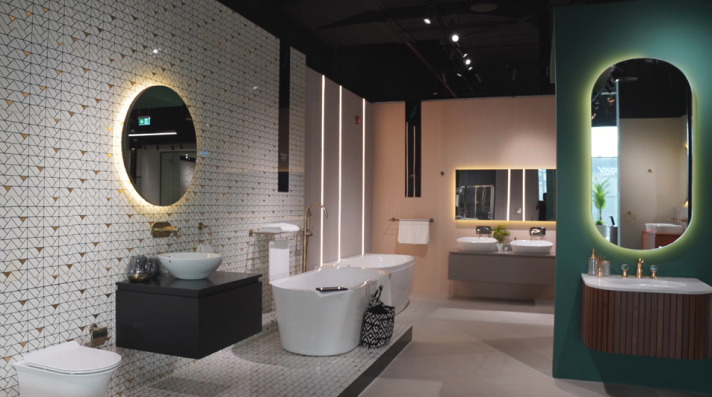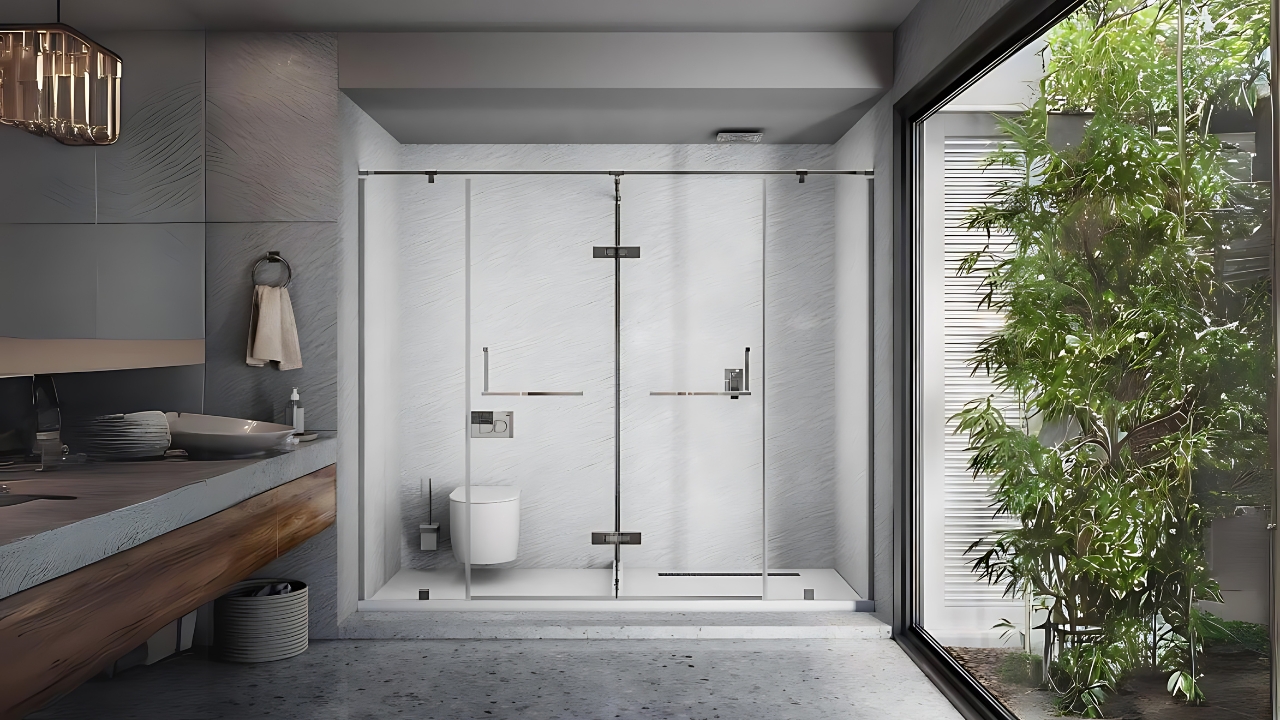We all appreciate a refreshing shower to start or end our day, but have you ever wondered how much it affects your water bill? Showers are a common household activity, and while they are essential for hygiene and relaxation, they can also lead to surprisingly high water bills. Understanding the impact of your shower habits can help you make adjustments that not only benefit your wallet but also the environment. In this article, we’ll explore the seven main impacts of showers on your water bill and provide practical tips for saving water.
Impacts of Showers on Your Water Bill

Credits: Canva
1. Duration of Showers
The duration of your shower has a direct impact on your water bill. Longer showers use more water, which translates into higher costs. On average, a 10-minute shower uses about 25 gallons of water. If you take a 15-minute shower, this number increases significantly. Reducing your shower time by just a few minutes can lead to noticeable savings on your water bill.
Personal Tip: Setting a timer or using a water-saving shower timer can help you stay mindful of how long you’re in the shower.
2. Flow Rate of Showerheads

Credits: Jaquar
The flow rate of your showerhead is a crucial factor in determining water usage. Standard showerheads typically have a flow rate of 2.5 gallons per minute (GPM). However, low-flow showerheads can reduce this rate to 1.5 GPM or less, significantly decreasing your water consumption.
Example: If you switch from a high-flow to a low-flow showerhead and cut your water usage by 30%, you could save hundreds of gallons of water annually.
3. Frequency of Showering
How often you shower also impacts your water bill. While daily showers are common, reducing the frequency can lead to savings. For instance, if you shower every other day instead of daily, you could halve your water consumption from showers alone.
Personal Anecdote: I found that showering every other day not only helped save water but also gave my skin a chance to balance its natural oils.
4. Efficiency of Hot Water Systems

Credits: Jaquar
The efficiency of your hot water system affects both your water and energy bills. Older or less efficient water heaters can waste a lot of energy, which indirectly increases your water bill due to the extra hot water needed. Upgrading to a more efficient hot water system can result in savings over time.
Tip: Consider installing a tankless water heater or a more energy-efficient model to improve efficiency and reduce overall costs.
5. Water Temperature Settings
The temperature setting of your shower can influence water usage. Higher temperatures generally require more energy to heat, which translates into higher utility bills. Lowering your water temperature to a more moderate level can help reduce both your energy and water bills.
Example: Reducing your shower temperature by just a few degrees can result in significant energy savings over time.
6. Showering Habits (e.g., Singing in the Shower)

Credits: Jaquar
Certain habits, like singing or playing with the water, can increase the duration of your shower. While it’s enjoyable, it’s essential to be mindful of how these habits contribute to water wastage. Avoiding activities that prolong your shower time can help reduce water consumption.
Personal Tip: Try to focus on your shower routine and avoid distractions that could lead to longer showers.
7. Leakage and Maintenance Issues
Leaky showerheads or pipes can lead to substantial water wastage and higher bills. A dripping showerhead can waste gallons of water each day if not addressed promptly. Regular maintenance and prompt repairs are crucial to prevent unnecessary water loss.
Tip: Regularly check your shower system for leaks and address any issues immediately to avoid increased water bills.
Practical Tips for Saving Water and Reducing Your Water Bill

Credits: Canva
- Install Water-Saving Showerheads: Upgrading to a low-flow or water-efficient showerhead can drastically cut down on water usage.
- Shorten Shower Time: Aim to keep showers to a reasonable duration to minimize water waste.
- Adjust Water Temperature: Set your shower to a lower temperature to reduce energy consumption and water usage.
- Fix Leaks Promptly: Regularly inspect and repair any leaks in your shower system to prevent water wastage.
- Upgrade Hot Water Systems: Consider investing in a more efficient water heater to improve overall efficiency.
Conclusion
Understanding how your shower habits affect your water bill is the first step toward making more informed choices. By making small adjustments, such as installing a water-saving showerhead or shortening your shower time, you can significantly reduce your water consumption and save money.
At Jaquar, we offer a range of luxurious and efficient shower solutions designed to enhance your bathroom experience while helping you save water. Our diverse selection includes everything from Rain Showers that offer a refreshing, rain-like experience to Hydrolite Showers with LED lighting that changes with the water temperature.
Explore our range of Hand Showers and Ceiling Showers, each equipped with advanced features like RUBIT Technology, CLICK Position System, and Booster Technology to ensure you get the best shower experience. Visit Jaquar today to find the perfect shower solution for your home that combines luxury with water efficiency.
FAQs
1. How much water does a typical shower use?
A typical shower uses about 2.5 gallons of water per minute. For a 10-minute shower, this amounts to roughly 25 gallons of water.
2. Are there any incentives for installing water-saving showerheads?
Many regions offer rebates or incentives for installing water-saving fixtures. Check with your local water utility for specific programs.
3. How can I tell if my shower is leaking?
Inspect your showerhead and connections for any signs of dripping or water accumulation. You can also listen for the sound of dripping water when the shower is off.
4. Can I install a water-efficient showerhead myself?
Yes, installing a water-efficient showerhead is a straightforward DIY project. Most models come with easy-to-follow instructions.
5. Are there any DIY methods to reduce water usage in showers?
Yes, you can use a shower timer, adjust your showerhead’s flow rate, and ensure there are no leaks to reduce water usage.


